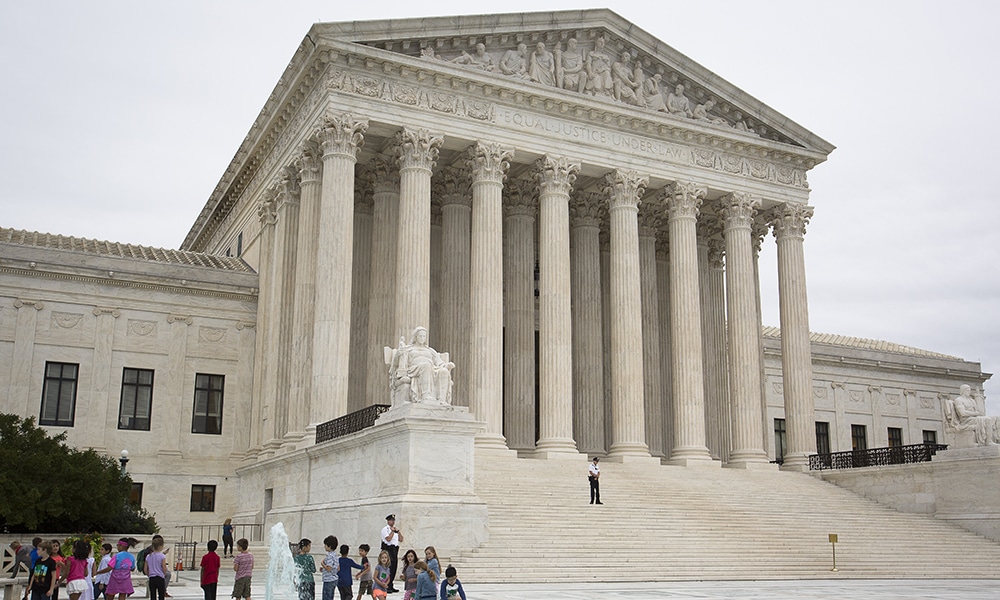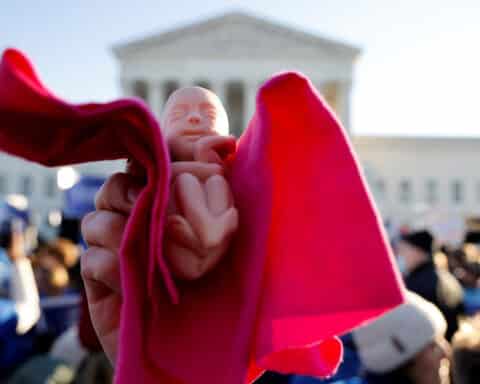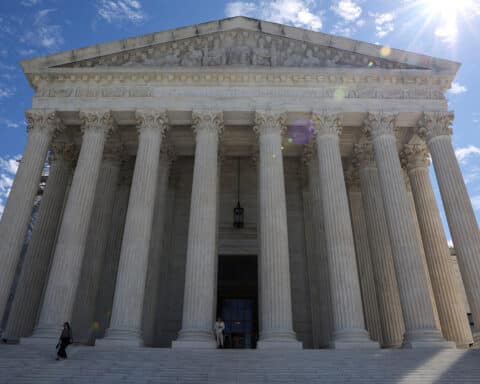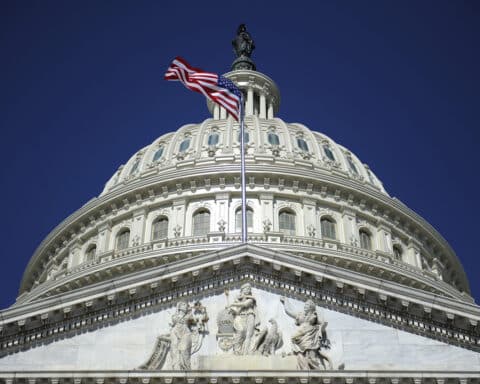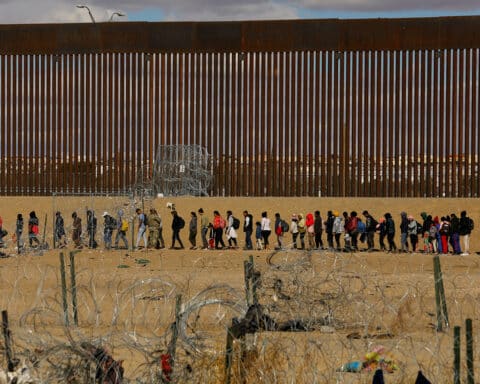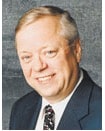
Born in colonial Maryland, he came from an old Catholic family. His older brother signed the Constitution while his cousin — Charles Carroll of Carrollton (d. 1832) — was the last surviving signatory to the Declaration of Independence.
John Carroll studied for the priesthood in Europe and was ordained a Jesuit priest in 1761. He returned to the colonies in 1773 when the Jesuit Order was briefly suppressed, ministering quietly until the Revolution.
It was during the Revolution that he earned his American stars and stripes. He was asked by the Continental Congress to join a delegation to Quebec to try to persuade French Catholics to join the American cause. The delegation failed, but Father Carroll made a lot of friends, including Ben Franklin.
Yet, he couldn’t escape that Catholic thing. Despite his service to the Revolution and his support of the young Republic, his faith was a black mark. As one prominent Boston minister described Carroll, “it seems strange that a man of sense should be so zealous in the cause of nonsense.”
John Carroll, first bishop of Baltimore and later archbishop, died in 1815. Among his many accomplishments, he founded Georgetown University under the Jesuits.
Which brings us to now. Supreme Court nominee Judge Brett Kavanaugh is Catholic and a graduate of Georgetown Prep, as is the newest member of the court, Neil Gorsuch (although he attends an Episcopal church now).
I am not arguing for or against Kavanaugh’s approval to the court. But what I have been waiting for is if the bitter opposition to his nomination will lead to another explosion of public anti-Catholicism.
One of the worst moments we have seen lately was Senator Dianne Feinstein in the grilling of Amy Coney Barrett, a Catholic and a Notre Dame law professor, after being nominated to the Seventh Circuit Court of Appeals.
Senator Feinstein, noting that Barrett had evidenced in her writing that she was serious about her Catholic faith, argued “the dogma lives loudly in you,” which was a danger to people who have fought for “big issues” in this country. It was a chilling reminder that in certain circles the Catholic faith is a disqualification for public office.
Despite Feinstein’s belief that Barrett’s serious Catholic faith was a bar to her appointment, she was approved. But when President Trump had Barrett on his final four list of Supreme Court candidates, a lot of flapping gums were already gearing up to burn her at a Catholic stake, despite the Constitution’s clear rejection of a religious test act for office.
No friend to the Church, New York Times’ columnist Frank Bruni feared a Barrett nomination would lead to a paroxysm of anti-Catholicism. Her supporters were “setting her up to be a Christian martyr … and daring Democrats to take the bait.” He hoped they would avoid the anti-Catholicism but didn’t appear overly confident.
Anti-Catholicism aimed at Kavanaugh has been thin and on the fringes, so far. He’s considered an “ashes and incense” Catholic who doesn’t go into thoughtful depth, like Barrett.
He’s a girls’ basketball coach at his daughter’s Catholic school and a lector at his parish. Safe stuff. Not serious Catholic stuff like Barrett evidenced.
They could be unpleasantly surprised at Kavanaugh’s depth. I don’t think he takes anything lightly, especially his faith.
So what will they do with him? I am pretty certain that public anti-Catholicism will be used if things get desperate.
Because when it comes to Catholics in whom “the dogma lives loudly,” constitutional rights go out the door.

